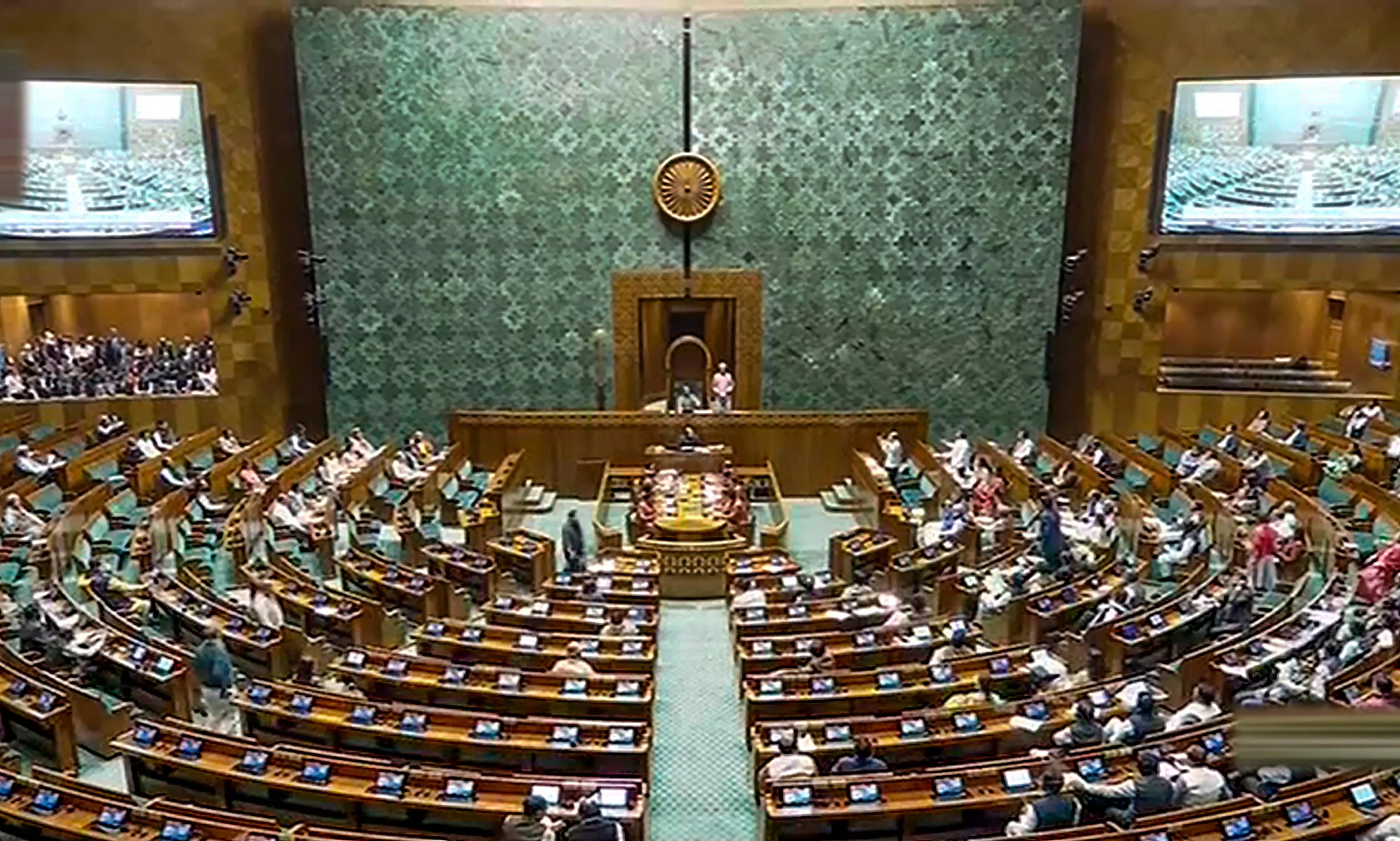LS Bill: 10 year jail for question paper leaks

New Delhi: The Lok Sabha on Tuesday passed the Public Examinations (Prevention of Unfair Means) Bill 2024 to sternly deal with malpractice and irregularities in competitive examinations with provisions for a maximum jail term of 10 years and a fine of upto Rs 1 crore.
Speaking on the bill, Union minister Jitendra Singh said its provisions are meant to safeguard the interests of meritorious students and candidates. He said the government “will not allow meritorious (candidates) to be sacrificed at the altar of organised crime”. He clarified that students and candidates do not fall in the purview of this bill and there will be no harm to job aspirants.
The bill comes against the backdrop of the cancellation of a series of competitive tests such as the teachers’ recruitment exam in Rajasthan, the Common Eligibility Test (CET) for Group-D posts in Haryana, recruitment exams for junior clerks in Gujarat and constable recruitment examinations in Bihar following question paper leaks.
The bill also proposes a high-level national technical committee on public examinations that will make recommendations to make the computerised examination process more secure. This panel will look into developing protocols for insulating digital platforms, devising ways and means for developing foolproof IT security systems, ensuring electronic surveillance of examination centres and formulating national standards and services for both IT and physical infrastructure to be deployed for conduct of such examinations.
In many instances, it was observed that organised groups and mafia elements involved in malpractices deploy solver gangs, use impersonation methods and indulge in paper leaks. The bill primarily aims to deter such nefarious elements. The objective of the bill is to bring in greater transparency, fairness and credibility to the public exam systems and to reassure the youth that their sincere and genuine efforts will be fairly rewarded and their future is safe.
Responding to the criticism by some Opposition members that the government was centralising everything, Singh said the Narendra Modi government believes in cooperative federalism and the bill does not attempt to centralise all the systems. He said that whenever any exam is cancelled, the effort would be made to hold the re-examination as early as possible. However, he added that there cannot be any firm timeline for re-examination of cancelled exams as often such cases are examined by the investigative agencies and they take their own time. The minister also said the UPSC was conducting exams in 14 languages and "we hope to gradually include all 22 languages”.
Participating in the debate on the bill, Congress leader Adhir Ranjan Chowdhury said the bill talks about penal provisions and is absent on preventive measures. He also alleged that the entire emphasis of the government was to centralise all authorities. Citing reports, Chowdhury said the country has witnessed a large number of cases with regard to data leaks and asked how the government intends to plug these loopholes. RSP MP N.K. Premachandran claimed that the provisions of the bill are against the principles of criminal jurisprudence and hence it should be referred to the standing committee for scrutiny. TMC leader Kalyan Banerjee said there was no dearth of laws but the real problem was with their implementation.

